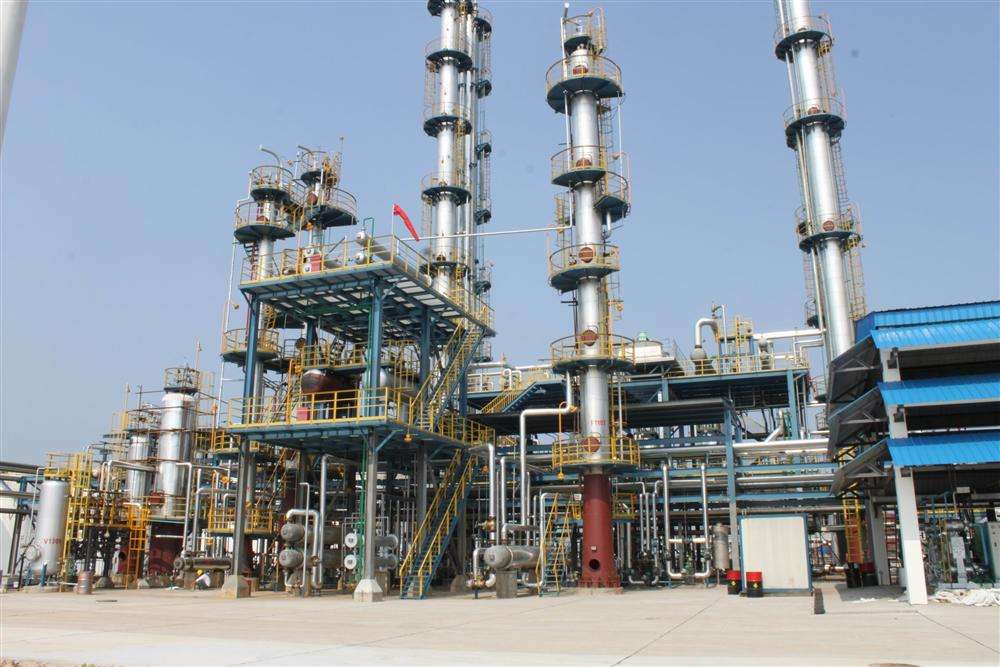The Phenol Alkylation Plant Revolutionizes Chemical Industry
In the dynamic world of chemical engineering, innovation remains the driving force behind the evolution of processes that shape modern industries. One remarkable advancement that stands out is the Phenol Alkylation Plant, a groundbreaking technology that has revolutionized the production of phenol and its derivatives. This article delves into the intricacies of this remarkable plant and explores its impact on the chemical industry.

Phenol, a versatile organic compound with widespread applications in various sectors, including pharmaceuticals, plastics, and textiles, is a vital ingredient in numerous industrial processes. One of the key methods for producing phenol involves alkylation, a chemical reaction that introduces an alkyl group into the phenol molecule. This process enhances the phenol's properties and diversifies its applications. The conventional methods of phenol alkylation, however, often involve hazardous chemicals and inefficient processes, leading to environmental concerns and safety risks.
Enter the Phenol Alkylation Plant
The Phenol Alkylation Plant introduces a groundbreaking approach that not only addresses these concerns but also offers remarkable advantages in terms of efficiency, safety, and sustainability. This innovative technology leverages advanced catalytic processes and cutting-edge engineering to streamline phenol alkylation.
Catalytic Excellence
Central to the Phenol Alkylation Plant is the utilization of novel catalysts that enable precise control over the alkylation reaction. These catalysts not only facilitate the reaction itself but also improve selectivity, ensuring the desired alkyl group is introduced accurately. The result is a higher yield of the desired phenol derivatives, minimizing waste and maximizing resource utilization.
Enhanced Safety Measures
Safety is a paramount concern in chemical engineering, and the Phenol Alkylation Plant takes this aspect to new heights. The plant is designed with state-of-the-art safety protocols, automated monitoring systems, and real-time feedback mechanisms. These features reduce the risk of accidents and ensure the well-being of personnel and the environment. Additionally, the reduction in hazardous chemicals and intermediates contributes to a safer working environment.
Environmental Sustainability
Perhaps one of the most notable advantages of the Phenol Alkylation Plant is its profound positive impact on the environment. By minimizing the use of toxic reagents and reducing waste production, the plant significantly lowers its ecological footprint. Additionally, the increased efficiency translates to lower energy consumption, further reducing greenhouse gas emissions. This newfound commitment to sustainability not only aligns with global environmental goals but also enhances the plant's reputation in an increasingly eco-conscious market.
Economic Benefits and Future Prospects
The Phenol Alkylation Plant's technological advancements translate into economic benefits for industries that rely on phenol and its derivatives. The improved process efficiency results in cost savings, which can be reinvested in research, development, and expansion. Moreover, the versatility of phenol derivatives opens doors to new markets and applications, fostering innovation and growth within the chemical industry.
Looking ahead, the Phenol Alkylation Plant serves as a testament to the potential of innovation in transforming traditional processes. As research and development continue, there is ample room for further optimization and expansion, propelling the industry toward even greater sustainability and efficiency.
In the ever-evolving landscape of chemical engineering, the Phenol Alkylation Plant shines as a beacon of innovation, redefining the production of phenol and its derivatives. Through its catalytic excellence, enhanced safety measures, and commitment to environmental sustainability, this groundbreaking technology exemplifies the immense potential of human ingenuity. As industries embrace the plant's advantages, the future holds promising prospects for continued advancements that drive the chemical industry toward a greener, safer, and more efficient horizon.
If you want to know more information please contact us.
评论
发表评论